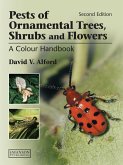This book introduces the reader to the exciting new field of plant philosophy and takes it in a new direction to ask: what does it mean to say that plants are sexed? Do 'male' and 'female' really mean the same when applied to humans, trees, fungi and algae? Are the zoological categories of sex really adequate for understanding the - uniquely 'dibiontic' - life cycle of plants?
Vegetal Sex addresses these questions through a detailed analysis of major moments in the history of plant sex, from Aristotle to the modern day. Tracing the transformations in the analogy between animals and plants that characterize this history, it shows how the analogy still functions in contemporary botany and asks: what would a non-zoocentric, plant-centred philosophy of vegetal sex be like?
By showing how philosophy and botany have been and still are inextricably entwined, Vegetal Sex allows us to think vegetal being and, perhaps, to recognize the vegetal in us all.
Vegetal Sex addresses these questions through a detailed analysis of major moments in the history of plant sex, from Aristotle to the modern day. Tracing the transformations in the analogy between animals and plants that characterize this history, it shows how the analogy still functions in contemporary botany and asks: what would a non-zoocentric, plant-centred philosophy of vegetal sex be like?
By showing how philosophy and botany have been and still are inextricably entwined, Vegetal Sex allows us to think vegetal being and, perhaps, to recognize the vegetal in us all.









